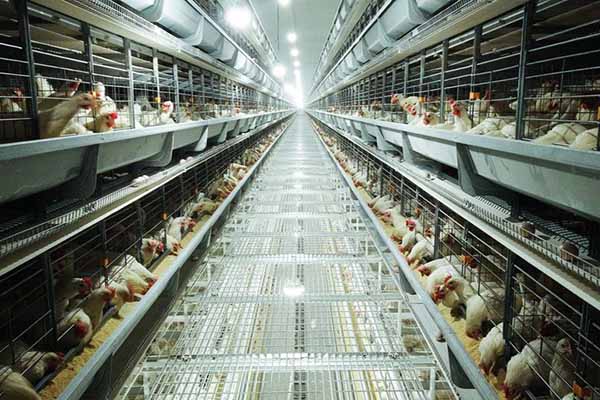How to Prevent Disease Outbreaks in Large-Scale Poultry Farms?
Introduction
Disease outbreaks in large-scale poultry farms can lead to significant financial losses and pose a threat to public health. As a poultry farm owner or investor, it is crucial to implement effective strategies to prevent these outbreaks. This article will discuss key measures to ensure a healthy and productive poultry operation.
1. Biosecurity Measures
Implementing strict biosecurity measures is essential to prevent disease outbreaks. Here are some key steps:
- Sanitation: Regularly clean and disinfect the farm, including feed and water sources, equipment, and animal housing.
- Access Control: Limit access to the farm to authorized personnel only. Visitors should wear protective clothing and shoes.
- Isolation: Isolate new arrivals from the main flock for a period to prevent the introduction of diseases.
- Monitoring: Regularly monitor the health of the flock and promptly address any signs of illness.
2. Vaccination Programs
Vaccination is a critical component of disease prevention. Consult with a veterinarian to develop a tailored vaccination program for your flock:
- Regular Vaccinations: Schedule vaccinations according to the recommended schedule for your specific poultry species.
- Re-vaccination: Re-vaccinate the flock as needed, especially after disease outbreaks or changes in the farm environment.
3. Genetic Selection
Selecting disease-resistant poultry breeds can reduce the risk of outbreaks:
- Genetic Research: Invest in genetic research to identify and breed disease-resistant poultry strains.
- Health Testing: Conduct health testing on breeding stock to ensure the flock’s genetic integrity.
4. Environmental Management
Maintaining an optimal environment for your poultry can help prevent disease outbreaks:
- Air Quality: Ensure proper ventilation to maintain a healthy level of oxygen and minimize ammonia and dust levels.
- Temperature Control: Monitor and control the temperature in the poultry houses to prevent stress and disease.
- Water Quality: Regularly test and treat water sources to ensure they are free from contaminants.
5. Monitoring and Response
Implement a system to monitor and respond to potential disease outbreaks:
- Surveillance: Conduct regular health checks and monitor for signs of disease.
- Response Plan: Develop and maintain a disease response plan that includes isolation, treatment, and reporting protocols.
Conclusion
Preventing disease outbreaks in large-scale poultry farms requires a comprehensive approach, including biosecurity measures, vaccination programs, genetic selection, environmental management, and monitoring. By implementing these strategies, you can ensure a healthy and productive poultry operation.
For more information on disease prevention and to receive a free poultry farm design and equipment quote, please leave a comment below or contact us at [email protected].





